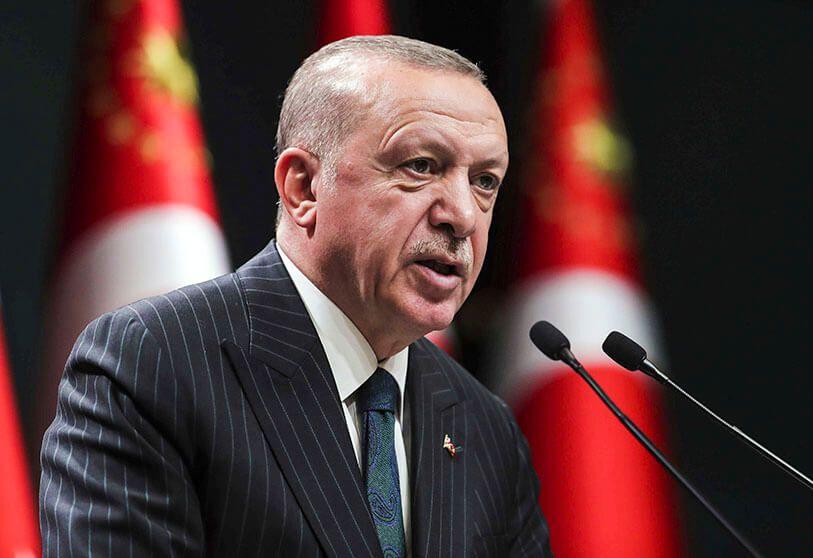The Turkish President Recep Tayyip Erdogan acknowledged on Sunday that his party had lost in the country’s local elections, saying the vote marked a significant change after two decades in power.
Initial results from across the nation of 85 million people showed major gains for the Republican People’s Party at the expense of Erdogan’s Justice and Development Party.
The opposition’s Ekrem Imamoglu claimed victory as Istanbul’s mayor, addressing euphoric supporters with the message: “Tomorrow marks a new beginning for our country.”
The final results are expected to be announced on Monday by the country’s electoral commission.
Erdogan, age 70, had launched an extensive personal campaign to regain control of Istanbul, the economic powerhouse where he had previously served as mayor. However, widespread inflation and an economic crisis have undermined confidence in the ruling party.
A large crowd gathered in the square outside the opposition party’s Istanbul city headquarters, waving Turkish flags and lighting torches to celebrate the result.
Following his vote, Imamoglu appeared to applause and chants of “Everything will be fine,” the same slogan he used when he first took the city hall from the AKP in 2019.
The 52-year-old is increasingly considered as the main rival to Erdogan’s AKP in preparation for the next presidential election in 2028.
In Ankara, mayor Mansur Yavas — also of the CHP — declared victory in front of a large crowd of supporters, stating, “the elections are over, we will continue to serve Ankara”.
“Those who have been overlooked have sent a clear message to those in power in this country,” he added.
Yavas led with 58.6 percent of the vote compared to 33.5 percent for his AKP opponent, with 46.4 percent of ballot boxes opened.
Supporters of the opposition celebrated in Izmir, Turkey’s third-largest city, as well as in the southern city of Antalya.
Some AKP stronghold towns were in danger of being lost, according to results.
“Voters have chosen to alter the appearance of Turkey,” said CHP chairman Ozgur Ozel as the results were revealed.
“They want to usher in a new political atmosphere in our country.”
– ‘Respect the decision’ –
Erdogan acknowledged the setback in a speech to supporters at the headquarters of his party.
“Unfortunately, we have not achieved the results that we desired,” he told a subdued audience.
“We will of course honor the decision of the nation. We will refrain from being stubborn, opposing the national will, and questioning the power of the nation,” he added.
Erdogan has been president since 2014 and won a new term in May last year. He had referred to Istanbul as the national “treasure” when launching his campaign to retake the city.
Despite his domination of the campaign, his personal involvement did not help alleviate the widespread concerns about the country’s economy.
“Everyone is concerned about day-to-day life,” said 43-year-old Istanbul resident Guler Kaya as she voted.
“The crisis is engulfing the middle class. We have had to change all our habits,” she said. “If Erdogan wins, it will get even worse”.
Although opposition parties had been divided leading up to the election, analysts anticipated a turbulent political future for the AKP and its allies.
Berk Esen, a faculty member at Sabanci University, stated that the CHP had achieved “Erdogan’s biggest election loss ever”.
“Despite an unfair competition, government candidates have lost even in conservative areas. This is the CHP’s best performance since the 1977 elections,” Esen said on his social media account.
– Unrest in southeast –
“Whoever wins Istanbul, wins Turkey,” Erman Bakirci, a pollster from Konda Research and Consultancy, remembered Erdogan once stating.
The election was conducted with the country dealing with an inflation rate of 67 percent and the lira currency dropping from 19 to a dollar to 32 to a dollar in one year.
Clashes occurred in Turkey’s Kurdish-majority southeast, resulting in one fatality and 12 injuries, as reported by a local official to AFP.
The pro-Kurdish DEM party said it had found irregularities “in almost all the Kurdish provinces”, particularly through suspicious cases of proxy voting.
Observers from France were denied entry to a polling station in the region, according to the lawyers’ association MLSA.
Around 61 million people were eligible to vote for mayors across Turkey’s 81 provinces, as well as provincial council members and other local officials.
AFP



